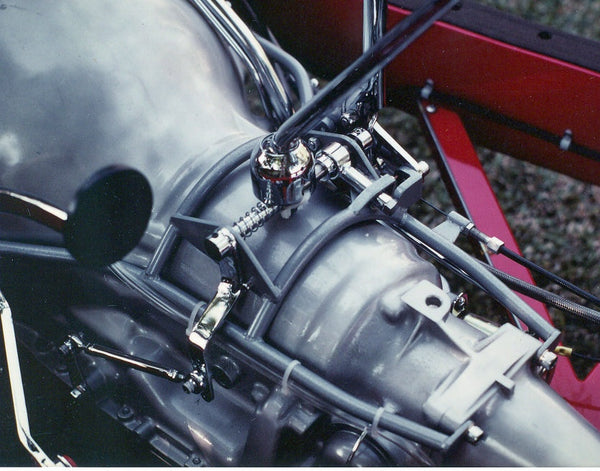
What Does “American Made” Really Mean?
You see it everywhere—“American ….” Companies slap “American” on boxes, websites, and banners like it means something. But does it really? Just because a company puts “American” in its name or waves a flag on its website doesn’t mean they actually made anything here. You know better.
Let’s cut through the crap.
If every part comes from overseas and someone turns a few screws in a U.S. warehouse, is that really “Made in America”? Some companies want you to think so. But that’s not how our shifters, sticks, hand brakes, and pedals are made.
"American Built" ≠ "American Made"
Here’s a dirty little secret: the term “American Built” can still mean it was made entirely from foreign parts. The same goes for “American Quality.” That label could be stamped on something that came off a line in Shanghai. Doesn’t sit right, does it?
Why Real American-Made Matters
When you buy American-made, you’re not just getting a product—you’re backing jobs, people, and quality. That’s what matters.
American parts are built tougher. They come from shops that take pride in what they do—not factories looking to cut corners. You’re also supporting your neighbors—folks who work hard, pay taxes, and play by the rules. That’s something to stand behind.
If you’re wrenching on your ride, odds are you care about the history and the heart behind it. That’s why true American-made shifters, sticks, hand brakes, and pedals mean something. They belong in your build.
The Fight to Build Here
Truth is, building everything in America isn’t easy. Labor costs are higher, and suppliers can be hard to find. But if a company chooses to do it anyway—despite all that—it means they care about getting it right.
That’s what we do at Gennie Shifter. We don’t take the easy road. We take the right one.
Calling Out the Fakes
Some big names have been caught red-handed:
- Williams-Sonoma lied about “Made in USA” products.
- Kubota slapped the label on thousands of foreign-made parts.
- Shinola built its watch brand around Detroit pride while importing heavily.
- Even Pyrex, your grandma’s favorite measuring cup brand, got busted selling foreign-made goods while claiming they were Made in USA.
They’re not “supporting America.” They’re cashing in on the people who want to.
So, What Kind of “American Made” Do You Believe In?
When the COVID lockdown nonsense hit and the global shipping mess began, we heard reports of other shifter companies not shipping products, companies that claim to be American or American quality. Not us. Gennie Shifter kept shipping, kept building, and kept doing business the way we always have—right here, at home.
You want shifter parts crafted by people who genuinely understand what they're building—and, more importantly, who they're building it for. Parts that carry the same enduring spirit as your American hot rod. If that's your standard, stick with Gennie.
That's what "American Made" means to us. So before you bolt anything onto your build, ask yourself: What kind of American Made are you truly after? If your answer sounds anything like ours—welcome home.
Our Commitment: Knowing Who Makes Our Parts
We don't just "source" our parts—we know the dedicated individuals behind them. These are the craftspeople you'd share a laugh and a cold beer with at a car show or a swap meet. They're real people, pouring real pride into creating real parts.
Our commitment drives us to seek out American suppliers, even when it's not the path of least resistance. Why? Because it profoundly matters to us, and we know it matters deeply to the kind of person who chooses our shifters. Every dollar spent on American-made parts directly supports someone’s livelihood right here at home. It's a parent buying baseball gear for their kids, or a young builder saving for their first custom frame. That's the human impact behind our supply chain—American families doing what they love and need to do.
We're not perfect; there are still some parts we can't practically source domestically. They are small parts.
If you’re someone who values the real deal, who builds with pride, and still believes in doing things the hard way when it’s the right way—welcome home.
